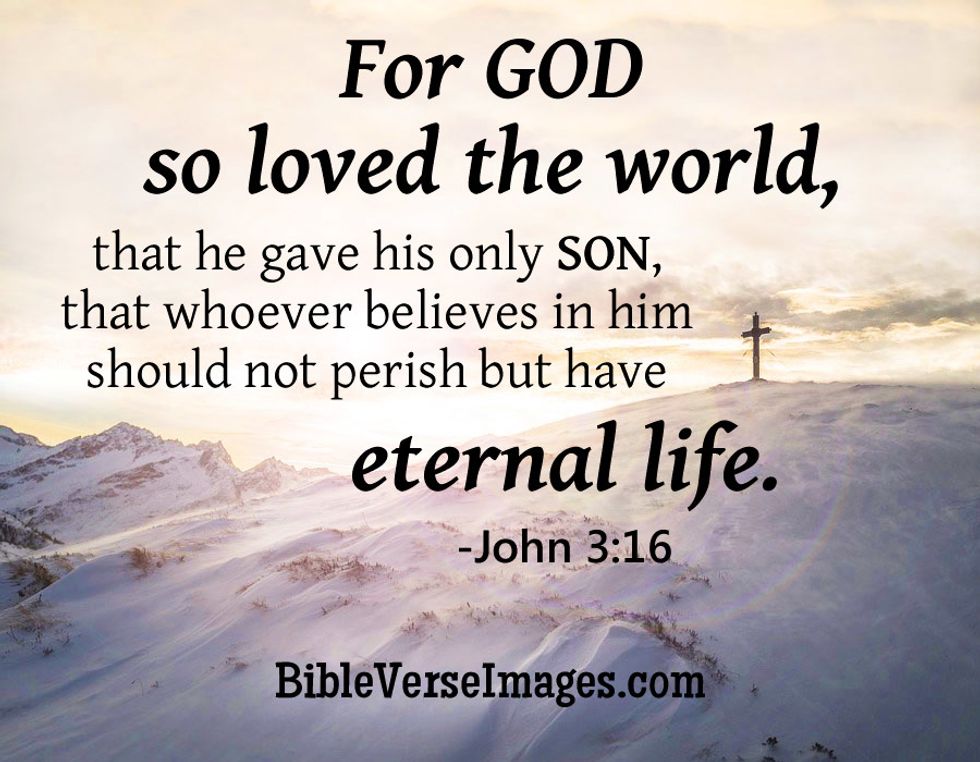This past week, I resumed my favorite hobby in my second semester of college: Watching sermons on YouTube. Three weeks ago, Transformation Church located in Middletown NY uploaded a sermon by Pastor Michael Todd titled "Grace For Them?"
This message is part seven in the series, "Grace Like a Flood." I was blown away by the content and I especially want to share the insights I obtained today by God through Pastor Mike because the sermon has been a huge wake up call to how I view other people. This message was given mostly to the believers to urge them to guard against condemnation of other people, especially the nonbelievers. Most of the examples illustrated below come from the sermon itself.
Pastor Mike starts his sermon using the first portion of John 3:16, "for God so loved the world." The world is inclusive of everyone, the people liked and disliked. Admittedly, I judge people for what they are going through. When I hear two celebrities publicly announce a divorce, I think, "Ah ha! Sucks for them." When I hear that people overdosed, I think, "that's what they get for using! They shouldn't have been doing that!" In my heart, I am smug to see that I am better than they are. This is true even in my church. When someone with a difficult personality or past comes into the church, I nervously think, "what will the people in the congregation think of this person and the way they behave?" and I end up choosing the congregation over the person. I would rather guard the peace of the church than bring someone new into the Kingdom of God.
This message is based on the event in John 8:1-11: a woman is caught in the act of adultery and is brought before Jesus. The teachers of the religious law, people who love and fear God, wanted to find fault with Jesus so they asked him whether they should stone her as according to the Law of Moses. Jesus agrees but says that only a sinless person could throw a stone. This causes the religious people to leave one by one. Pastor Mike illustrated that sometimes we talk to God in the same manner:
Me: "God, You want to pour Your grace on these people?"
God: "Yeah, these people."
Me: "Come on God, surely not them, God. We know they're wrong. They did this. I mean, God, Your Word clearly says that we can't do those kinds of things.
God: "Yeah, I want my grace for these people."
Me: *Sulks away*
I found myself identifying with the accusers in the Bible passage. I found myself saying, "Lord, You can't forgive these people. I mean, look at them! Look at what they've done!" I end up hiding in the bush with my stones ready, waiting for people to mess up, thinking with glee about these people's failures so that I could show God that I am better than they are. Pastor Mike illuminated the fact that the only one who had no stones to throw at the woman was the one who had no sin. It hit me hard that I don't want God to pardon the people in sin even though I didn't earn God's grace and He gave it to me.
Finally, Pastor Mike touched upon what Jesus did in the Bible passage. The fact that he, without sin, waited with the woman caught in a very blatant sin demonstrates a very important lesson for me: I can love and care someone who lives in very blatant sin because they are a child of God.
Although not mentioned in the sermon, I kept thinking about the relationship between the LGBTQ+ community and the church. As the child of two very conservative Asian parents, I instinctively shy away from these people when I want to share the gospel. After all, the Bible says that they are living in blatant sin. If I hang out with these people, that means I would be accepting their way of life, but I know that they're living in sin. Therefore, Christians feel like it is their duty to beat on the LGBTQ+ community about their lifestyle.
However, what Jesus did is so clear in the passage: He didn't beat the woman up, saying that she needed to change herself before becoming part of the family of Christ. He protected her, even taking the risk that he might get hit with stones, before telling her to "go and sin no more."
To my fellow brothers and sisters, there is a difference between agreeing with other people's beliefs and loving them. Just like how we can love a family member with different beliefs, we can love people who don't believe in God. Why? Simply because "for God so loved the world," and they are included in the "world." Therefore, I challenge my fellow believers who cherish Jesus. Can we be open minded and see that each person is a child of God? Can we see that God loves them and love them according to how God loves them?

















